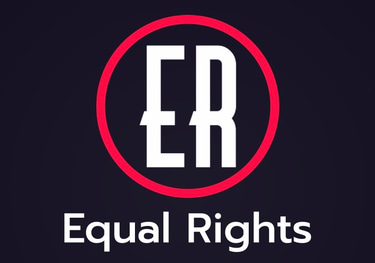Cybersecurity and Human Rights
Protecting Digital Freedoms
Kylo B
7/20/2024
Cybersecurity and Human Rights: Protecting Digital Freedoms
In an increasingly digital world, the intersection of cybersecurity and human rights has become a critical area of concern. As more aspects of our lives move online, the protection of digital freedoms becomes paramount. Cybersecurity, which involves measures to protect internet-connected systems from cyber threats, plays a vital role in safeguarding human rights such as privacy, freedom of expression, and access to information. This article explores the importance of cybersecurity in protecting human rights online and the challenges and solutions associated with this evolving landscape.
The Importance of Cybersecurity for Human Rights
Protecting Privacy
Data Protection: Cybersecurity measures help protect personal data from unauthorized access, breaches, and misuse. In the digital age, personal information is constantly collected and stored by various entities, including governments, corporations, and social media platforms. Ensuring the security of this data is essential to protect individuals' privacy rights.
Confidentiality: Secure communication channels, such as encrypted messaging apps and secure email services, are crucial for maintaining the confidentiality of personal and sensitive information. This is particularly important for journalists, activists, and human rights defenders who may be targeted for their work.
Ensuring Freedom of Expression
Protection from Censorship: Cybersecurity tools can help circumvent internet censorship imposed by authoritarian regimes. Technologies such as virtual private networks (VPNs), Tor, and proxy servers enable individuals to access blocked content and communicate freely.
Preventing Surveillance: Strong cybersecurity measures can protect individuals from mass surveillance and targeted spying. By securing their digital communications and activities, people can express themselves without fear of retaliation or persecution.
Safeguarding Access to Information
Combatting Misinformation: Cybersecurity plays a role in identifying and mitigating the spread of misinformation and disinformation. By securing information channels and verifying sources, cybersecurity helps maintain the integrity of information that individuals rely on to make informed decisions.
Ensuring Availability: Cybersecurity measures ensure the availability of critical information systems and services. Protecting websites and online platforms from cyber attacks such as Distributed Denial of Service (DDoS) attacks ensures that individuals can access information and services when they need them.
Challenges in Protecting Digital Freedoms
Evolving Cyber Threats
Sophisticated Attacks: Cyber threats are becoming increasingly sophisticated, with attackers using advanced techniques to breach systems and steal data. State-sponsored hacking, ransomware, and zero-day exploits pose significant challenges to cybersecurity.
Emerging Technologies: New technologies such as the Internet of Things (IoT), artificial intelligence (AI), and quantum computing introduce new vulnerabilities and attack vectors. Securing these technologies is critical to protecting digital freedoms.
Balancing Security and Privacy
Surveillance vs. Privacy: Governments often justify increased surveillance measures in the name of national security. However, such measures can infringe on individuals' privacy rights and freedom of expression. Finding a balance between security and privacy is a persistent challenge.
Data Collection: While data collection can enhance security measures, it also poses risks to privacy. Organizations must implement strict data protection policies to ensure that data is collected and used responsibly.
Digital Divide
Access to Cybersecurity Tools: Not all individuals and communities have equal access to cybersecurity tools and knowledge. The digital divide exacerbates existing inequalities, leaving marginalized groups more vulnerable to cyber threats.
Education and Awareness: Lack of cybersecurity awareness and education is a significant barrier to protecting digital freedoms. Ensuring that individuals understand the importance of cybersecurity and how to protect themselves online is crucial.
Solutions for Protecting Digital Freedoms
Strengthening Legal and Regulatory Frameworks
Data Protection Laws: Implementing robust data protection laws and regulations, such as the General Data Protection Regulation (GDPR) in the European Union, helps safeguard individuals' privacy and personal data.
Cybersecurity Policies: Governments should develop and enforce comprehensive cybersecurity policies that prioritize the protection of human rights. This includes measures to prevent cyber attacks, protect critical infrastructure, and ensure the accountability of those who violate digital freedoms.
Promoting Encryption and Secure Communication
End-to-End Encryption: Encouraging the use of end-to-end encryption for digital communications can protect individuals from surveillance and data breaches. Messaging apps like Signal and WhatsApp use end-to-end encryption to secure users' messages.
Secure Browsing: Promoting the use of secure browsing technologies, such as HTTPS and secure DNS services, helps protect individuals from cyber threats while they access information online.
Enhancing Cybersecurity Education and Awareness
Public Awareness Campaigns: Governments, NGOs, and tech companies should collaborate to raise public awareness about cybersecurity risks and best practices. Campaigns should focus on educating individuals about how to protect their digital freedoms.
Training Programs: Offering cybersecurity training programs and resources can empower individuals and organizations to secure their digital environments. This includes providing resources for journalists, activists, and human rights defenders who are often targeted by cyber attacks.
Supporting Cybersecurity Research and Innovation
Investing in Research: Governments and private sector entities should invest in cybersecurity research and innovation to develop new technologies and solutions for emerging cyber threats. This includes research into AI-driven cybersecurity, quantum-resistant encryption, and secure IoT devices.
Public-Private Partnerships: Collaboration between the public and private sectors can enhance cybersecurity efforts. Sharing information about threats, vulnerabilities, and best practices can help protect digital freedoms more effectively.
Cybersecurity is essential for protecting human rights in the digital age. As technology continues to evolve, so too must our efforts to safeguard digital freedoms such as privacy, freedom of expression, and access to information. By strengthening legal frameworks, promoting secure communication, enhancing education and awareness, and supporting research and innovation, we can ensure that the digital world remains a space where human rights are respected and protected. As we navigate the complexities of the digital landscape, a human rights-centered approach to cybersecurity will be crucial in upholding the values of freedom, equality, and justice.
